Alzheimer’s Disease and What We Eat
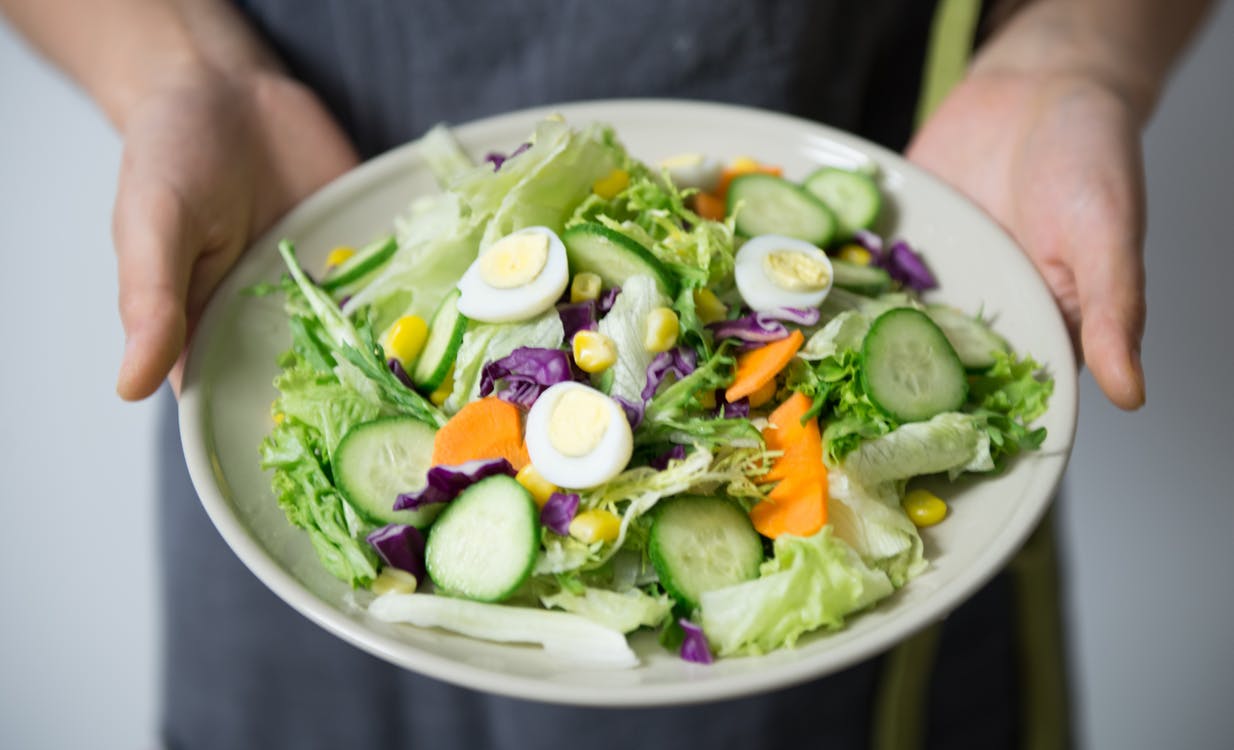
It’s two weeks since attending the funeral service for a dear friend whose battle with Alzheimer’s ended as her body gave in to the complications from the disease.
Our friend Judy’s Alzheimer’s experience was the first with this disease for my wife and me. We shouldn’t be surprised by that since statistically the disease only affects about 1.8% of the American population.
I know it would seem to be so much more prevalent than it is because of the attention it gets. The attention is deserved because it truly is a devastating and costly experience for those close to the victim and to our society.
We can confirm that the impact hugely outweighs its relatively low level of occurrence.
For Judy, her transition from a quiet, warm, giving, serving mom, wife, sister, aunt, grandmother, and friend into a world none of us can comprehend was shockingly quick. Her signs manifested quickly and progressed rapidly.
At least it seemed so for us, but probably not for her husband and two sons who we suspect saw the signs much earlier and protected her, and us, by not revealing those until an official diagnosis was made and the signs too obvious to conceal.
It seemed like almost overnight that our relationship moved from energy-filled golfing trips, card-playing evenings, countless dinners together, years of Bible-study to one where she was a mere incoherent, bewildered body in the room, unable to connect and communicate.
We observed the truth that the disease is much harder on the caregiver than on the victim. Her husband was extraordinary in his love and caring for her to the point where a memory care facility was necessary. The devastating toll on him physically and emotionally was and is palpable. We reached a point in the progression where we realized our focus needed to be on watching and trying to help him get through it.
That continues as a focus for us. They were exceptionally close – he needs and deserves a strong support group going forward to help cope with this void.
No cure in sight.
 It’s discouraging, with our awareness of the devastating impact of the disease, that virtually no progress has been made in finding a cure or treatment, despite billions poured into research. It seems to be a classic case of trying to catch a racehorse after it has left the barn.
It’s discouraging, with our awareness of the devastating impact of the disease, that virtually no progress has been made in finding a cure or treatment, despite billions poured into research. It seems to be a classic case of trying to catch a racehorse after it has left the barn.
We know enough about the disease to realize that it is very insidious in nature with the symptoms developing gradually years before the disease noticeably manifests itself. So as we try to attack the disease, our reductionist system of medicine looks more to a cure and less to a cause. My sense is that once the symptoms are apparent, there is nothing at this point in our medical knowledge that can fix it.
It begs the question then why do we not talk and spend more on prevention than on chasing what appears to be an incredibly elusive and perhaps unfixable condition once contracted.
With that thought in mind, an article recently published by the Blue Zones organization entitled “The 2 Foods That Combat Alzheimer’s Disease (& Other Lifestyle Factors to Reduce Your Risk of Cognitive Decline)” caught my eye.
I encourage you to read the article. It’s an interview by “The Blue Zones” author Dan Buettner with a husband and wife team, Drs Dean and Ayesha Sherzai, who are “combating the disease with a comprehensive approach that includes prevention and treatment.” Their book “The Alzheimer’s Solution” espouses Alzheimer’s prevention through a healthy lifestyle.
They state:
“We believe 90% of Alzheimer’s can be prevented through a healthy lifestyle. Despite the resistance towards lifestyle intervention as a tool for dementia prevention, the most recent consensus statement from Alzheimer’s Association is that 60% of Alzheimer’s can be prevented through a comprehensive lifestyle. This number is based on a recent study by Rush University and was highlighted in the media. But we think that they are still understating the influence lifestyle has on Alzheimer’s risk, because their idea of intensive/comprehensive intervention is a watered-down version of what we consider healthy. If people truly live a healthy lifestyle, 90% should be able to avoid Alzheimer’s within their normal lifespan.”
They coined an acronym to help us remember the components of this lifestyle: NEURO
N – Nutrition
E – Exercise
U – Unwind
R – Restorative sleep
O – Optimizing cognitive and social activity
It’s appropriate that N-nutrition is the first letter of the acronym because they come down on nutrition as the most significant Alzheimer’s risk reducer.
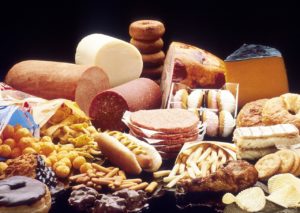
That makes sense because that’s consistent with what I noted in my September 30, 2019 article that “our diet is both the number-one cause of death and the number-one cause of disability in the United States.”
This Blue Zones article covers a lot of ground and concludes with the selection of two foods that are best for brain health.
Pretty simple: beans and greens.
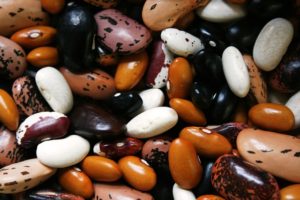
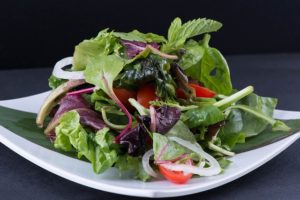
How tough can it be to adopt these two natural foods into our nutrition plan?
Well, tougher than we demonstrate. These are not popular components of the fare you will find in fast food places or restaurants in general.
Since we now spend more money eating out than we do to purchase food to eat at home, our current lifestyles are not the venue where we are likely to feed our brains optimally.
I don’t expect that “beans and greens” will ever supplant the pervasive “burger and fries”, “steak and potatoes”, “milk and cookies”, “beer and brat”, “bacon and eggs” American nutrition mindset. But then, life is really nothing more than a series of choices and this is one in which current research is bringing us encouraging news to combat one of the worst debilitations a human can experience.
I dedicate this article to Judy, thanking her for the example of love, sweetness, calmness, and service that exemplified her life. And to her husband whose endurance, dedication, and sacrifice during this very difficult time has been far beyond the pale.

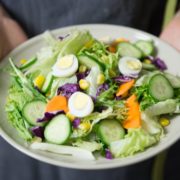



Nice distillation of Alzheimer’s prevention. I like having the acronym, NEURO, as a tool to remind me of the elements in daily living to focus on.
Thanks,
pat
There are definitely areas of the country where beans, greens and plant based nutrition are more popular – We are getting closer to having a critical mass in this area. People should also avoid aluminum and any heavy metal as that can influence this disease. Glad you were able to be a support for your friend during this very difficult time
Thanks Joanne. I know you are getting great exposure to other parts of the country. I’d be interested to know where you have discovered the area where plant-based is more popular. I hope you are right on the critical mass.
We’re so underserved by our medical community. And it’s bewildering how few people actually advocate on behalf of their own health. Or take responsibility for making better decisions. Blue Zone lifestyle makes great sense!
Hi Howard, I fully agree with you, there are few advocates for our health but most of the literature misses the base concept of “Proactive Accountability” popularized by Tim Autrey. A proactively accountability person take full responsibility for all their actions and choices well ahead of any negative outcomes. I keep finding a few such folks and if we get them banded together it bodes well for all of us. As we experiment for/on ourselves and learn together we become a knowledge base for others. Without proactive accountability we are always reliant on the so called experts.
Thanks Howard. I, too, am amazed. It really isn’t that complicated – but it isn’t easy because it calls for habit change and that is tough for everybody especially as we get older.
Gary – I’m very sorry to hear of your friend’s struggle and recent passing. I recently read the book “Food: What the Heck Should I Eat” by Dr. Mark Hyman, who recommends limited amounts of legumes, and none at all for those with extra weight or belly fat. But then “The Longevity Diet” by Valter Longo and many nutritionists advise just the opposite. It’s hard to know exactly what to do anymore… At least everyone seems to agree on greens, particularly organic!
Deference to website author, some superb information .